Case Research: A success Trade Sun Installations
With its abundant sunshine, Australia has become a prime location for businesses to harness the sun’s power.
Australian enterprises reduce their environmental impact by embracing commercial solar power and reap significant financial benefits. This article delves into several case studies showcasing the successful implementation of solar power systems across various industries.
Are you looking to save money on your electricity bills and reduce your carbon footprint? Solar energy is the perfect solution! Energy Matters can help you get up to 3 FREE solar quotes from pre-qualified and vetted solar installers in your area.
Energy Matters is the leading supplier of solar quotes in Australia due to its vast partnership network of high-quality installers. With Energy Matters, you can be sure you’re getting the best possible deal on solar energy.
The allure of commercial solar power
Before exploring specific case studies, it’s essential to understand why businesses adopt solar energy.
- Reduced energy costs: One of the most significant advantages of business solar installations is the substantial reduction in electricity bills. By generating clean energy on-site, businesses can offset a considerable portion of their grid consumption, leading to substantial cost savings.
- Environmental sustainability: Commercial solar power is vital in mitigating climate change. By reducing reliance on fossil fuels, businesses contribute to a cleaner and healthier planet.
- Enhanced brand reputation: Embracing renewable energy enhances a company’s image and attracts environmentally conscious customers and investors.
- Increased property value: Solar installations can enhance the value of commercial properties. Potential buyers and tenants often view solar-powered buildings as more desirable and energy-efficient.
- Hedge against rising energy prices: Solar power safeguards against fluctuating electricity costs, ensuring long-term financial stability.
- Technological advancements: Advances in solar technology have made it more efficient and affordable than ever. Businesses can now access a range of solar power solutions tailored to their specific needs, from rooftop installations to large-scale solar farms.
- Government incentives: Various government solar incentives, such as feed-in tariffs and rebates, make solar installations more financially attractive for businesses.
Finding the right solar incentives
Your location, system size, and property type will determine the specific commercial solar incentives you qualify for. Check our pages for the most up-to-date information and applicable rebates.
Case studies: Solar power success stories
Government incentives, rising energy costs, and a collective push toward sustainability have made commercial solar power a compelling option for enterprises nationwide.
Retail, grocery chains, aviation hubs, hotels, and agriculture companies are leading the way, proving that solar power is an environmentally conscious choice and a sound financial investment.
Case study 1: Retailer – IKEA Australia
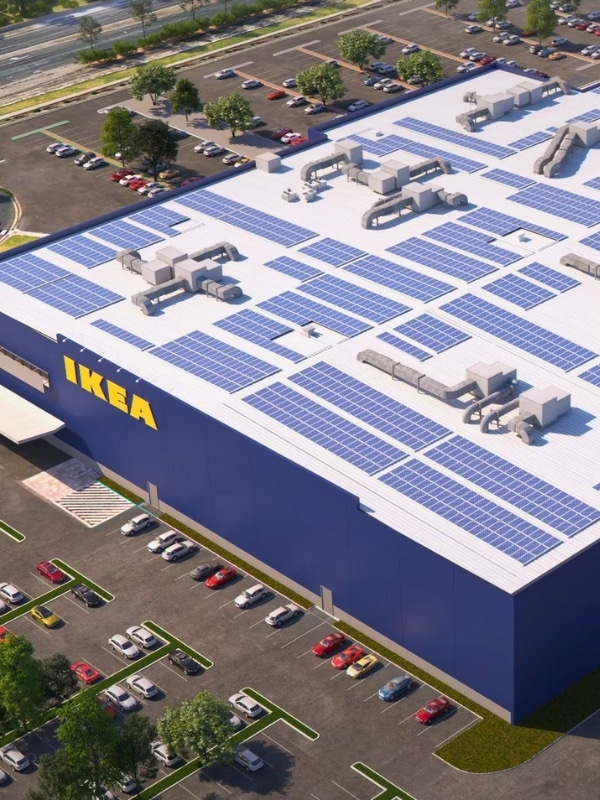
IKEA Australia has also made significant strides in adopting solar power for businesses. The global furniture retailer has installed solar panels on the rooftops of its stores and distribution centres across Australia. By 2020, IKEA had installed over 18 MW of solar capacity, making it one of the retail sector’s largest commercial solar power users.
The solar installations generate approximately 25,000 MWh of electricity annually, enough to power more than 4,000 Australian homes. IKEA’s commitment to solar power is part of its broader strategy to achieve 100% renewable energy across its global operations by 2030.
IKEA’s business solar benefits include substantial cost savings on energy bills, a reduced carbon footprint, and alignment with the company’s sustainability goals. Additionally, IKEA’s investment in solar power has enhanced its brand image, positioning the company as a leader in sustainability within the retail industry.
Case Study 2: Grocery store chain – ALDI Australia
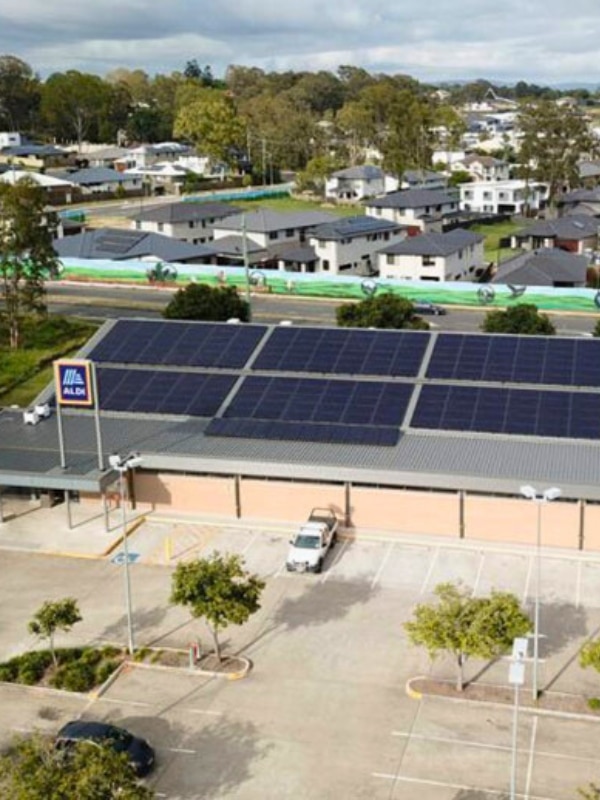
Another successful business solar installation can be seen with ALDI Australia. The supermarket giant has substantially invested in solar power across its stores and distribution centres. By the end of 2020, ALDI had installed over 104,000 solar panels across 253 stores and six distribution centres, making it one of the country’s most significant commercial solar power users.
ALDI’s solar installations have a combined capacity of over 50 MW and generate approximately 74,000 MWh of electricity annually, enough to power over 10,000 Australian homes for a year.
The business solar benefits for ALDI have been substantial. Not only has the company reduced its energy costs, but it has also strengthened its reputation as a sustainable and environmentally responsible retailer. ALDI’s solar power initiatives have also inspired other businesses in the retail sector to explore similar renewable energy solutions.
Case study 3: Aviation hub – Melbourne Airport
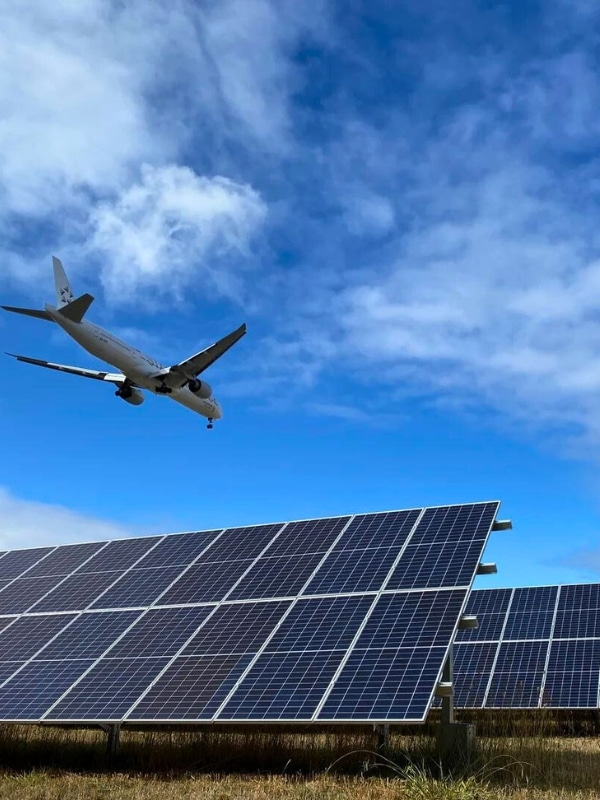
Melbourne Airport is another prime example of a successful commercial solar power installation in Australia. In 2019, the airport installed a 12.4 MW solar farm, making it the largest solar installation at an Australian airport. The solar farm consists of more than 30,000 solar panels covering an area of 19 hectares.
The solar farm generates approximately 17,000 MWh of electricity annually, supplying nearly 15% of the airport’s annual electricity needs. This is equivalent to powering over 4,000 homes annually. The commercial solar power installation at Melbourne Airport was driven by the desire to reduce energy costs, lower carbon emissions, and demonstrate leadership in sustainability within the aviation industry.
The business solar benefits for Melbourne Airport extend beyond cost savings. The solar farm has significantly reduced the airport’s carbon footprint, contributing to its goal of becoming carbon neutral by 2025. Additionally, the project has enhanced the airport’s reputation as a sustainability leader, attracting positive attention from passengers, airlines, and stakeholders alike.
Case study 4: Agriculture – South Australian Produce Market
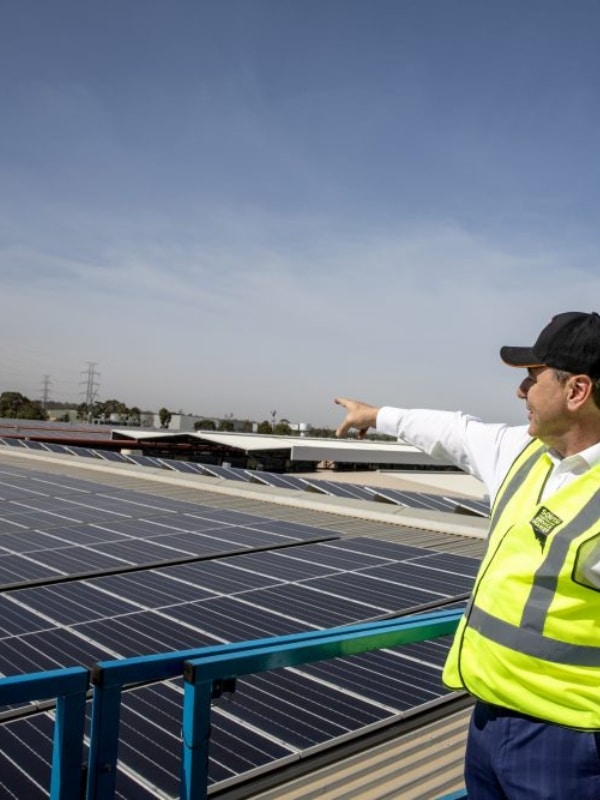
Melbourne Airport is another prime example of a successful commercial solar power installation in Australia. In 2019, the airport installed a 12.4 MW solar farm, making it the largest solar installation at an Australian airport. The solar farm consists of more than 30,000 solar panels covering an area of 19 hectares.
The solar farm generates approximately 17,000 MWh of electricity annually, supplying nearly 15% of the airport’s annual electricity needs. This is equivalent to powering over 4,000 homes annually. The commercial solar power installation at Melbourne Airport was driven by the desire to reduce energy costs, lower carbon emissions, and demonstrate leadership in sustainability within the aviation industry.
Case study 5: Hotel sector – Crowne Plaza Hunter Valley
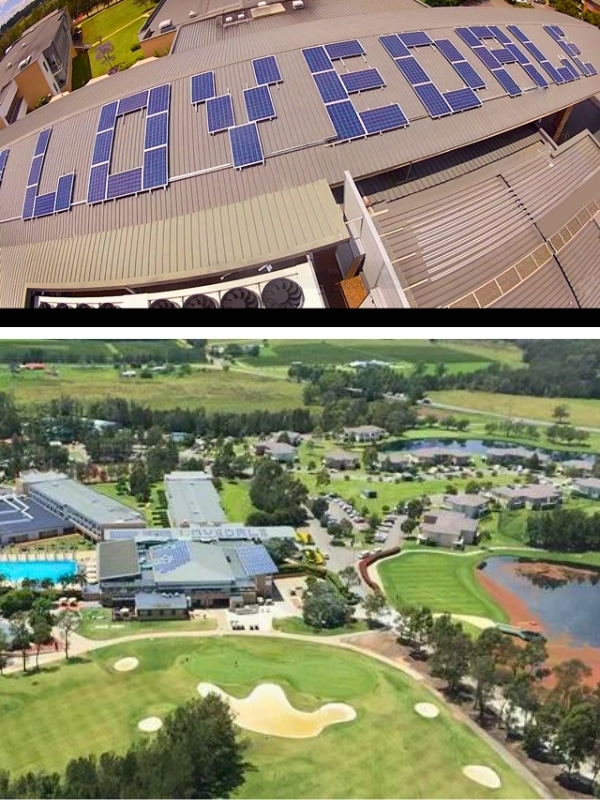
The Crowne Plaza Hunter Valley is a premier resort located in the heart of New South Wales’ wine country. Renowned for its commitment to sustainability, the resort operates one of the largest solar power systems in the Australian hotel industry, with a solar farm producing 5 MW per hour. This impressive energy output meets the resort’s needs and supplies excess power to other regional hotels.
Guests can enjoy luxurious accommodations, a championship golf course, and a variety of dining options, all while knowing their stay supports eco-friendly practices. The resort’s dedication to renewable energy and sustainability makes it a standout destination for environmentally conscious travellers.
Case study 6: School and universities – University of Queensland
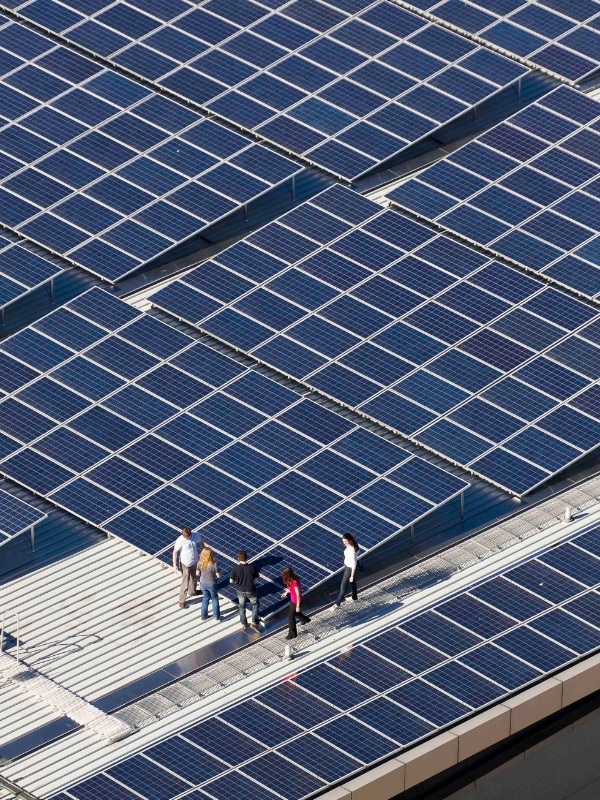
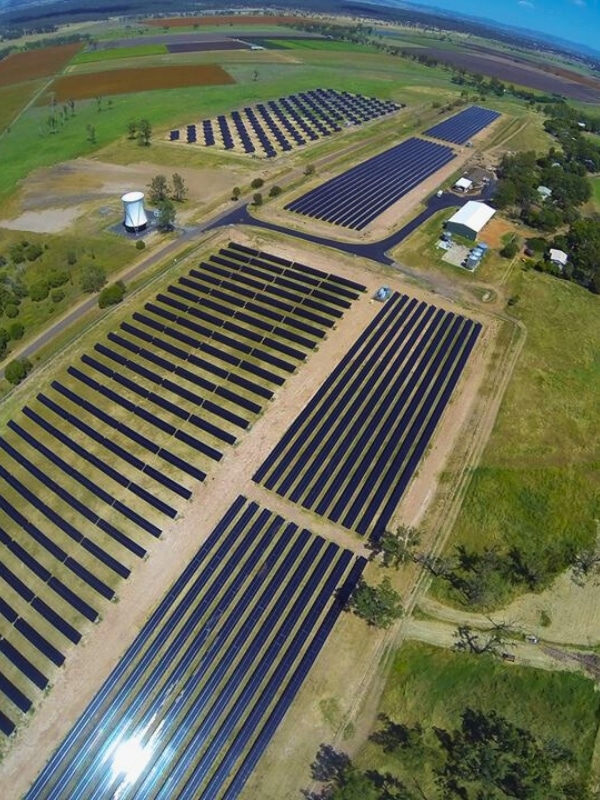
The University of Queensland (UQ) is pleased to be a pioneer in renewable energy. The 64-megawatt Warwick Solar Farm is part of their facilities.
Furthermore, UQ produces an additional 7 megawatts of electricity from other sites, including the St Lucia campus’s 2.14 megawatt integrated photovoltaic system and the 3.275 megawatt Gatton Solar Research Facility.
Fast-charging stations for electric vehicles are available at UQ’s St Lucia, Gatton, and Warwick campuses. UQ works to reduce its energy use by running its operations efficiently and raising awareness of energy issues among the campus community.
These cutting-edge research facilities enable UQ’s solar experts to make innovative discoveries about producing sustainable energy and reducing carbon emissions.
Read more about the Benefits of Solar Panels for Schools and Universities.
Overcoming challenges and maximising benefits
While the benefits of commercial solar power are undeniable, businesses may encounter challenges during the installation and operation phases. Factors such as roof suitability, system sizing, financing options, and government incentives need careful consideration. Engaging experienced solar installers and conducting thorough feasibility studies are crucial for successful project implementation. Australian businesses can unlock solar power’s full potential by carefully addressing these challenges and leveraging the available opportunities.
Key considerations for business solar installations
While the benefits of commercial solar power are evident, businesses must carefully consider several factors before embarking on a solar project:
- Feasibility assessment: Evaluating roof space, solar irradiance, and energy consumption patterns is crucial to determine the optimal system size and expected return on investment.
- Financial analysis: Conducting a thorough financial analysis, including payback periods, cash flow projections, and potential incentives, is essential for making informed decisions.
- Solar panel technology: Understanding the different types of available solar panels and their performance characteristics is vital for selecting the most suitable technology.
- Installation and maintenance: Partnering with reputable solar installers and establishing a maintenance plan is essential for ensuring system reliability and longevity.
The case studies presented in this article highlight the transformative impact of commercial solar power on Australian businesses. By embracing solar energy, companies can achieve substantial cost savings, enhance their environmental reputation, and contribute to a sustainable future.
As technology advances and solar panel prices decline, the adoption of commercial solar power is expected to grow exponentially, driving Australia towards a cleaner and more energy-independent economy.
Is solar energy suitable for your business?
Solar energy has numerous advantages that are worth investigating. Investing in solar will minimise your operational costs, reduce your company’s carbon footprint, and prepare it for the future. A commercial property with a solar installation is excellent for business.
When installing commercial solar panels for a company, it is crucial to know all types of federal government solar rebates, incentives, and the many benefits they provide. They may help Australian businesses become future-ready and sustainable for years to come.
Contact Energy Matters today for up to 3 FREE quotations from commercial solar firms we’ve pre-qualified and vetted for their track record of delivering Australia’s best business solar systems.
The post Case Studies: Successful Business Solar Installations appeared first on Energy Matters.


No Comments